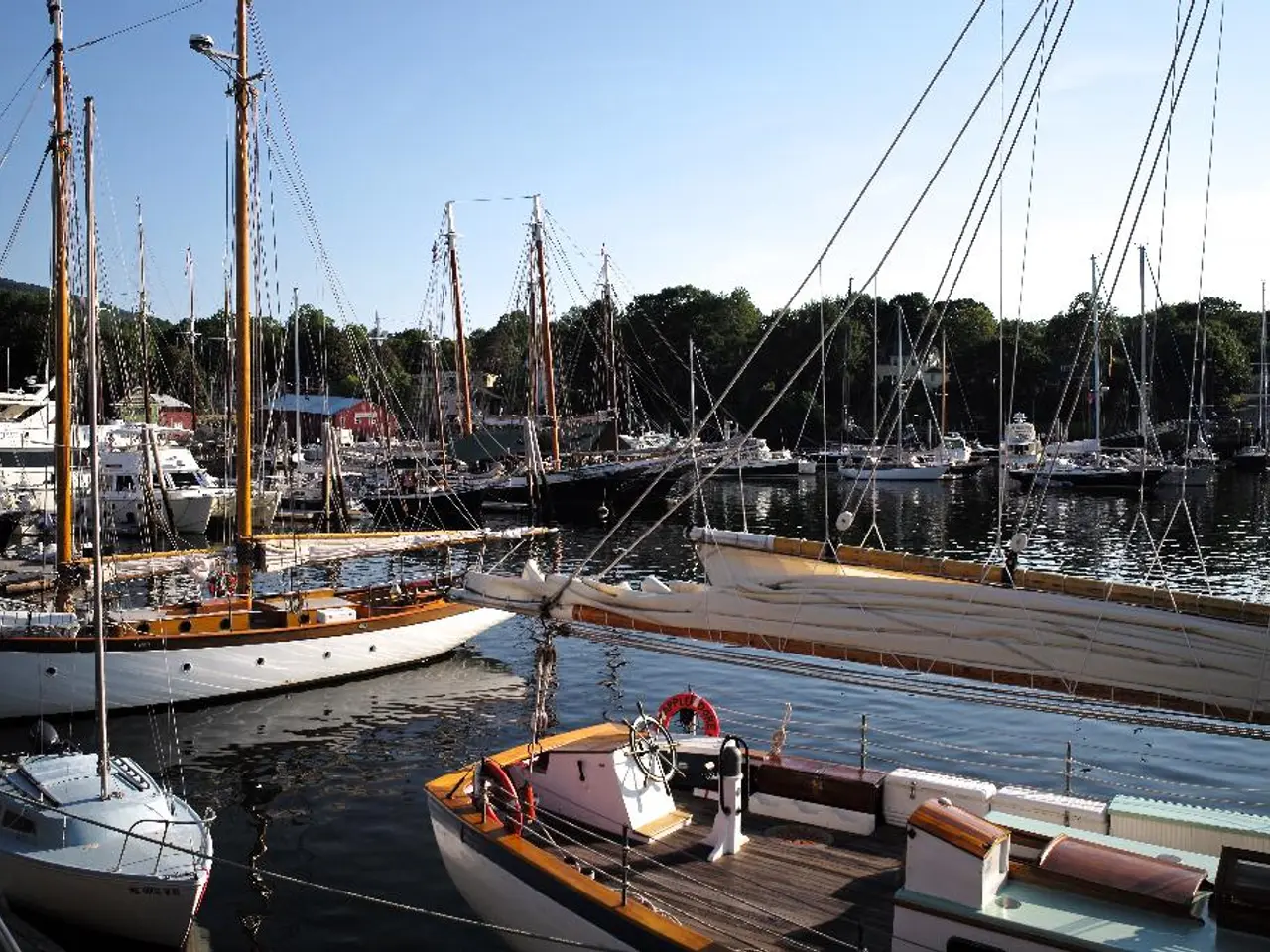Voyage Through History: The Chronological Progression of the Age of Discovery
In the 15th century, the Age of Exploration began, a period that would forever change the course of human history. This epoch was initiated by a combination of economic, political, and technological factors that propelled Europeans to venture into uncharted territories.
Economic motives such as the search for gold, spices, and new trade routes were primary drivers. Europeans sought to find direct sea routes to Asia to bypass expensive land routes, gain access to rich resources, and establish overseas colonies and trading posts.
Advancements in navigational technology marked the Age of Exploration, enabling explorers to venture into unknown waters with greater precision and confidence. Improvements in ship design (such as the caravel), navigational tools (like the astrolabe and compass), and understanding of winds and currents allowed sailors to travel farther and more safely across oceans.
Powerful monarchs and nobles, such as Prince Henry the Navigator of Portugal, funded expeditions. This was partly driven by competition between European powers, a desire to spread Christianity, and national prestige.
Explorers like Bartolomeu Dias successfully rounded the Cape of Good Hope in 1482, providing evidence of a viable sea route to the East. Jacques Cartier explored Eastern Canada from 1533 to 1535, a significant journey that contributed to the Age of Exploration.
The 16th century witnessed a flourishing period known as the Golden Age of Exploration, characterized by daring voyages and groundbreaking achievements. During this time, Christopher Columbus reached the Americas in 1492, marking the beginning of intense European exploration and colonization.
In 1577-1580, Englishman Sir Francis Drake achieved the second recorded circumnavigation of the globe. Ferdinand Magellan orchestrated the first successful circumnavigation of the globe from 1519 to 1522, demonstrating the Earth's roundness and reshaping perceptions of its dimensions.
Vasco da Gama became the first European to sail to India in 1498, opening new maritime routes and establishing crucial connections with the lucrative spice markets of the East. Dutch navigator Abel Tasman made significant discoveries in 1642, including Tasmania, New Zealand, and various Pacific islands.
The desire for wealth and glory drove explorers to venture into uncharted territories. The establishment of Jamestown in 1607 played a crucial role in the broader context of New World colonization.
Geopolitical conflicts in the 18th century diverted resources and attention away from ambitious exploration initiatives. However, European powers persisted in their exploration and colonization efforts worldwide throughout the 18th century.
The 17th and 18th centuries marked a continuation of global exploration and colonization, shaping the course of history. Late Explorations and Colonization (1600s-1700s) saw the expansion of European knowledge of the Pacific region, thanks to the voyages of Abel Tasman.
Thus, the Age of Exploration, driven by economic goals, technological advancements, and political support, set the stage for the European maritime explorations that would define the 1400s through the 1600s.
A traveler in the 15th century, heavily influenced by the focus on wealth and national prestige, ventured into uncharted territories to discover direct sea routes, establish trading posts, and access exotic resources, likely adopting a lifestyle that valued adventure and discovery.
In the 16th century, amidst the Golden Age of Exploration, Elizabethan England saw a rise in focus on voyages and global connections, as shown by Sir Francis Drake's circumnavigation of the globe, embodying the spirit of exploration and adventurism in lifestyle.




